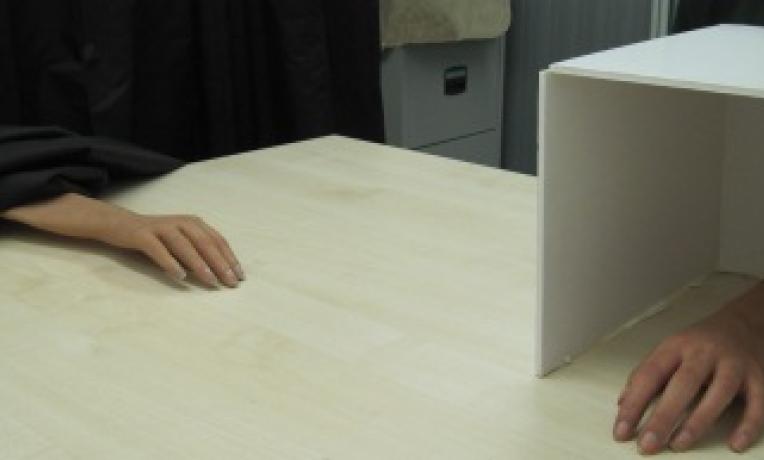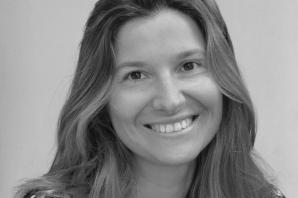Constructing the self
How does our acting, sensing and feeling body shape our mind? Dr Katerina Fotopoulou’s ERC-funded project is an ambitious exploration of the relationship between the body and the mind which spans philosophy, psychology and clinical neuroscience. She will be presenting her work at the World Economic Forum Annual Meeting of the New Champions in Tianjin, China (10-12 September). In preparation for her presentation, Dr Fotopoulou is concentrating on one particular aspect of her research: the ramifications of body image.

What we see in the mirror
As part of the ERC’s IdeasLab session in Tianjin (China) on Wednesday 10 September, Dr Fotopoulou will be addressing the question of the embodied self. Her presentation will focus on the relationship between how we see our bodies and how we protect ourselves against an uncritical internalisation of these images. “By giving so much significance to outside images, we forget about what happens inside - how we process these images, how we filter these perceptions and what this does to our sense of self", she says.
Dr Fotopoulou’s ERC project ranges beyond questions of body image into the role of primary body signals. Signals from the body are known to be processed in hierarchically organised re-mappings in the brain. However, it remains unknown how the brain integrates them to give rise to our awareness of ourselves as embodied beings. These signals can be roughly divided into three areas - signals from inside the body, from outside and those we receive from others. They are, perhaps inevitably, interrelated. How the inside of the body makes us feel, for example when our heart is racing, is inextricably linked to what we see in the mirror as well as to the perceptions we have absorbed from others.
Bodily signals continuously condition our sense of self, but we are only really aware of them when something goes wrong: “when you are walking somewhere, you are concentrating not on your sense of the bodily self moving through space but on reaching your destination. But if you trip, then you are suddenly jolted into a sense of your self failing to negotiate a pavement", Dr Fotopoulou says.
Processing pain
One particularly interesting aspect of this research is the group’s investigation of the experience of pain. “The link between stimulus and damage when we feel pain, the perception of pain is not a category in the brain. Instead, our response to pain is based on our previous experience of it,” Dr Fotopoulou explains. “When a child falls over, there is a delay. The child stops and watches its mother. If the mother reacts dramatically, the child will start to cry. If the mother’s response is more practical, the child is much more likely to pick themselves up and carry on. In other words, the child’s experience of pain is conditioned by their mother’s sense of how much danger they are in.”
How mind–body processes can affect healing
The awareness of the relationship between the body and the self is significant when studying the experiences of brain damaged patients. Dr Fotopoulou and her team are particularly interested in patients who deny their conditions, or who are unaware of them - who believe that they retain motion in a paralysed side after a stroke for example. This kind of self-deception can inhibit treatment: it is difficult to treat a patient who does not believe that there is anything wrong with them.
“Brain damaged patients are traditionally treated as broken-down machines in neurological terms,” Dr Fotopoulou explains. “But their problems are psychological as well as physical. By applying cognitive neuroscience methods when treating a small number of patients we have demonstrated that disorders that were previously thought to be intractable can be treated. Studies of this kind are vital: working with patients whose sense of self is fractured can teach us not only about their disorders but also tell us something about how these mechanisms function in healthy individuals.”
The hope is that these findings can be fed into future policy decisions about the treatment of brain damaged patients: particularly in terms of the importance of psychotherapy as part of the rehabilitation process.
ERC funding has enabled Dr Fotopoulou and her team to set up a truly interdisciplinary project. “We have been given the luxury of time to apply a wide range of methods and tools from disciplines as diverse as philosophy and psychology. We have the freedom to pursue the best science without any external pressures - to develop ideas and to publish only when the science is ready.” Dr Fotopoulou and her team are based at University College London (UCL), UK.


